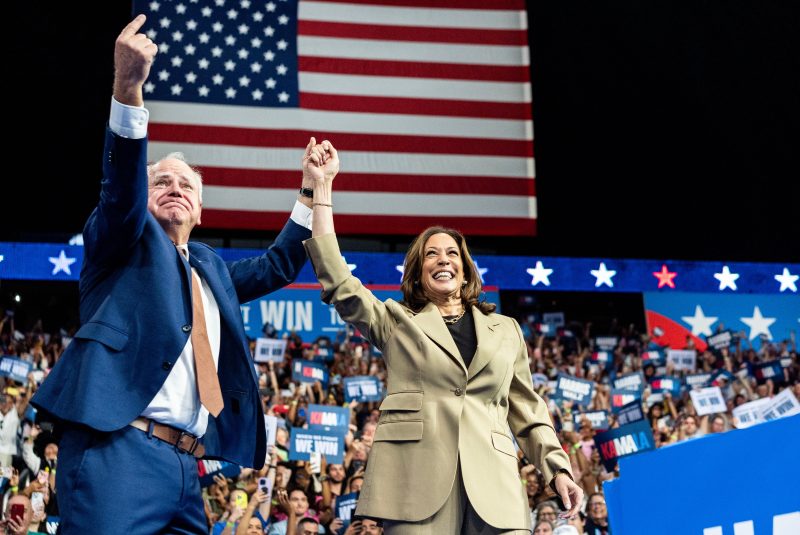The obsession with crowd size has long been a contentious aspect of political discourse. From former President Donald Trump’s fixation on the size of his rally crowds to Democrats now embracing the metric as a point of pride, the issue of crowd size has evolved into a symbol of political power and popularity. This shift in emphasis begs the question: why are politicians and their supporters so fixated on the size of their crowds?
One explanation for the newfound focus on crowd size is the rise of social media platforms as key tools for political engagement. With the ability to share photos and videos of packed rallies or events, politicians can quickly advertise their support base and generate excitement among their followers. In a world where perception matters greatly, a large crowd can serve as a visual representation of a candidate’s popularity and influence.
Moreover, the significance placed on crowd size reflects the broader culture of competition and one-upmanship in politics. By showcasing a larger turnout than their rivals, politicians seek to assert their dominance and prove their ability to mobilize supporters. In a sense, crowd size has become a form of political currency, with larger crowds equating to greater legitimacy and momentum.
On a deeper level, the obsession with crowd size may also tap into human psychology and the desire for validation and recognition. For politicians, a massive turnout at an event can serve as validation of their message and leadership, reinforcing their sense of self-worth and success. Similarly, for supporters, being part of a large crowd can create a sense of belonging and community, affirming their beliefs and values.
However, the emphasis on crowd size can also have negative consequences. The hyperfocus on numbers can overshadow substantive policy discussions and meaningful engagement with voters. It can reduce complex political issues to a simplistic popularity contest, where success is measured solely by the size of the audience rather than the impact of the message.
In conclusion, while crowd size can be a compelling and persuasive metric in the realm of politics, it is essential to remember that it is just one aspect of a broader and more nuanced political landscape. Rather than fixating solely on the numbers, politicians and their supporters should strive to engage in meaningful dialogue, address pressing issues, and work towards building a more inclusive and informed political environment.
